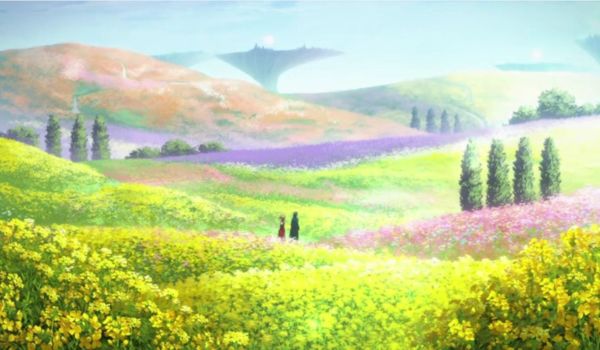
You’d think anyone would prefer Heaven over Hell, given the choice. There is a good reason why not, though: Heaven is hard. As in, unyielding, solid, not malleable or bendable like the lower worlds. Some years ago I tried to explain this to some friends, and the were like “Have you read The Great Divorce by C.S. Lewis?”
I have finally, this late in my life, started reading C.S. Lewis’ The Great Divorce. I rather enjoy it. It is a “spiritual fantasy” really, not an allegory but not intended as a realistic description of the spirit world, from his own preface. But he is not really hiding the religious content, not after the first few pages.
To me, the book is kind of shocking or unnerving. Not because of its religious implications, but because it is familiar in a completely different way. I wrote quite a bit of it before I knew it existed. And it wasn’t even religious. Not in the least. It was pure science fiction.
I was about 19 years old, I think, when these stories began to tell themselves in my head. They varied somewhat, but they had a common framework. There was this ordinary world, and there was a higher world, “the world above ours”. In my stories, it was a physical world, not a spiritual Heaven where souls went. One ascended to it in a secret cave, using a mysterious ladder that had been placed there in some unimaginable past. The main character who discovered this passageway was in for a rude surprise: The “world above ours” was 20 times more real than ours. Mass was that much denser, energy that more energetic. Even lack of energy, such as cold or dark, were more intense. The only time visiting this world was bearable was just after sunset and sunrise, when it was not cold enough to freeze you to ice and not hot enough to roast you alive. Even breathing the air there was painful, and at first you could not drink the water or even venture out of the cave. It would take repeated visits to gradually begin to absorb some of that more intense reality by breathing it in, before you could carefully begin to explore.
Conversely, after a while the muses in my head added a “world below ours” which was that much less real, so that anyone entering there from our world would be amazingly real at first, but gradually dissipate their reality the longer they stayed there and the more they used it.
Now I pick up this book from 1945 and there is this super-real world where even walking on the grass hurts the poor shades from the lower world, where they find themselves half transparent in the light there. I think the first thing that really creeped me out was the mention of the time of day: The very beginning of the dawn. The same time my own characters were able to visit “the world above ours”. The next was the promise that staying there would help them become able to tolerate the world, that the very nature there would assist them.
Conversely, in the world below, people were able to manifest houses simply by willing them into being, but the houses were insubstantial – in other words, the people had supernatural powers by virtue of being more real than the world, but the world itself was less real. It was an eerie echo of my own fiction from years before I heard any rumors of this book. I think the notion that this vertical stacking of worlds had any spiritual meaning only entered my mind 6-5 years ago, after I had started reading the One Cosmos blog.
My stories were, as I said, not at all religious. But the similarity is still more than enough that any literary agent would have pointed out that this was basically a secular take on Lewis’ book, I am sure. Except I had not even heard of it. (I had read Malacandra – Out of the Silent Planet – somewhere around that time, I think. But that was it. I was in my mid to late twenties when I found my second Lewis book, about Perelandra (Venus) and became aware that he had been a fairly active writer for a while.
Now, some may explain this by saying that when enough people have read a book, a morphic field is created which makes it easier to think the same thoughts. (“The 100th monkey effect”.) Or you may say that the spirit of Lewis inspired me from Heaven, because I was in my own way fairly innocent and had a similar temperament to him in his better years. But most would surely say that it is a coincidence. One of the innumerable coincidences that abound in my life. Sometimes I feel that being a Viewpoint Character is a bit like being ta’veren (in the Wheel of Time universe): Strange things happen around you frequently, but you cannot control them or even predict them. Even, it seems, when I am the one doing them!
But it sure is a huge coincidence, don’t you think?
